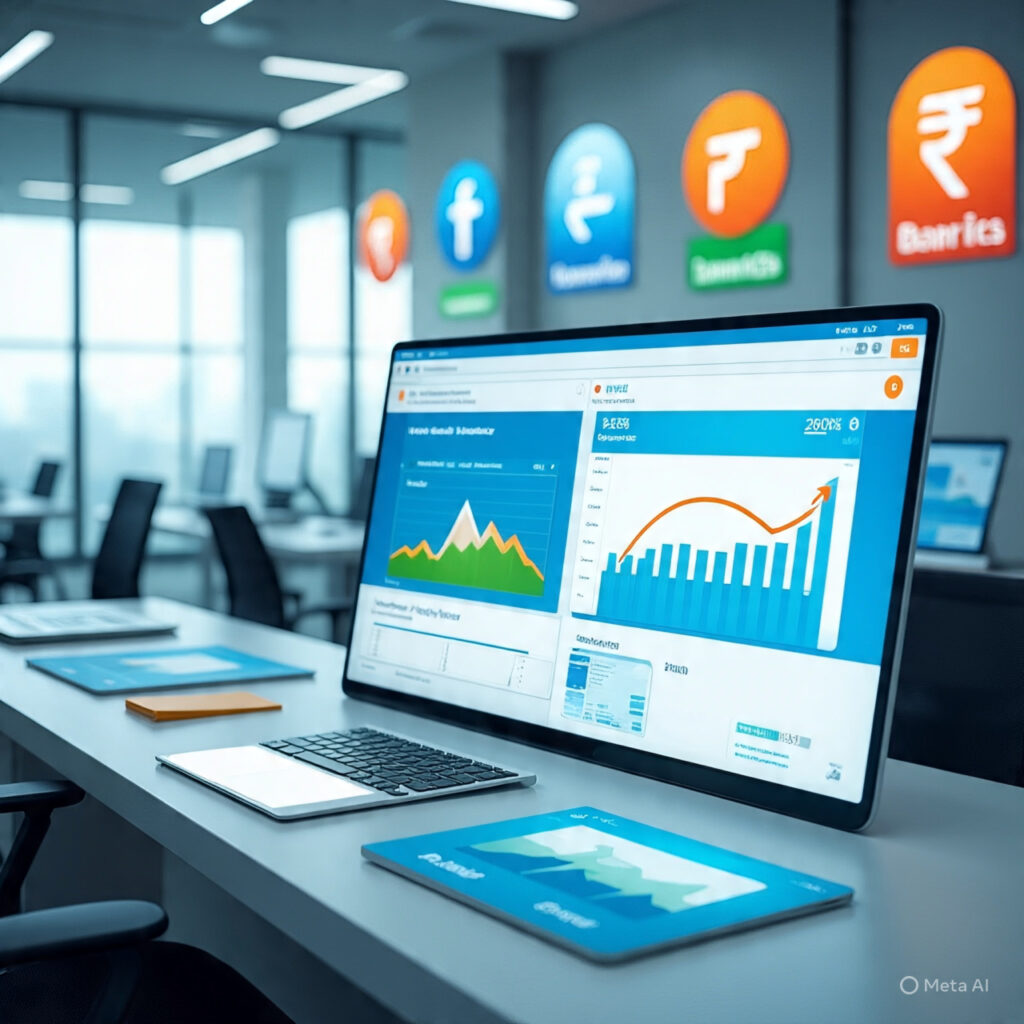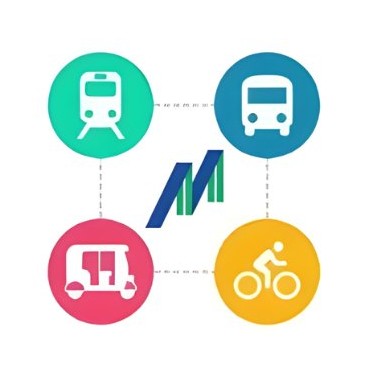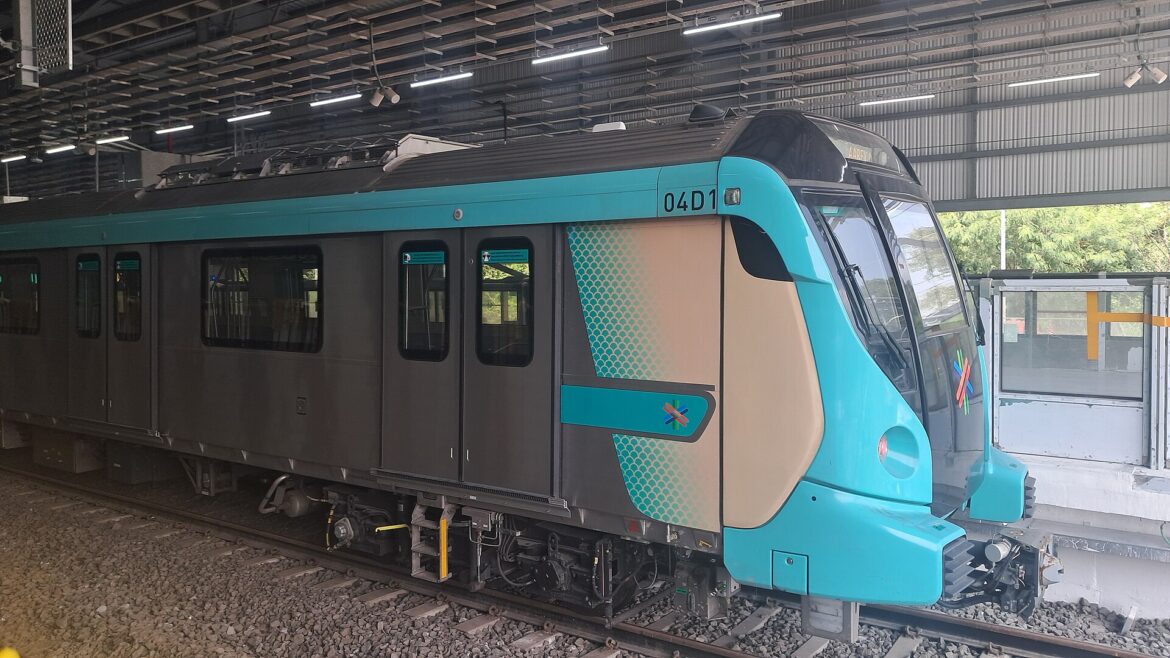As Mumbai’s first and only fully underground metro line, this gigantic project redefines commuting across the Mumbai Metropolitan Region (MMR), offering a faster, more efficient, and modern transit solution for millions of residents.
Mumbai’s Metro Line 3 is called the Aqua Line as it is fully built underground. The tunnelled route has 33.5 km. Of the 27 stations on the route starting from Cuffe Parade in the south end of Mumbai to Aarey JVLR in the north centre, 26 are underground, and one is at-grade, being at the same level. The final phase has introduced 11 new underground stations. The line connects with other metro lines, monorail, the legendary suburban rail, inter-city rail, and Mumbai’s International Airport. The Aqua Line will drastically decongest the roads, especially those connecting the south end of the city. The corridor is now open to the public, marking a historic moment in the development of India’s urban infrastructure landscape. Colaba–Bandra–SEEPZ corridor of the line is funded to the extent of Yen 354,132 million through Japanese Official Development Assistance (ODA) provided by the Japan International Cooperation Agency (JICA). In terms of yen, the overall project cost was JPY 680,692 million.
Mumbai Metro Rail Corporation (MMRCL), a joint venture between the Central Government and the Government of Maharashtra, implemented the project. With the completion of the project, people can travel from Cuffe Parade to the Airport within 45 minutes instead of around two hours earlier. The Aqua Line will cater to 1.3 million passengers a day. Though the project was conceived in 2011, the work on the site, involving complex engineering and tunnelling with the use of 17 Tunnel Boring Machines, began in 2017.
Paperless governance: e-bank guarantees in a few minutes
Over 60 institutions, including banks, NBFCs, capital market entities, and corporate entities, will be able to issue, renew, and invoke bank guarantees within a few minutes. It currently takes days to issue a bank guarantee.

The National e-Governance Division (NeGD), under the Ministry of Electronics and Information Technology (MeitY) and National E-Governance Services (NeSL), an Information utility regulated by the Insolvency and Bankruptcy Board of India (IBBI), entered into a landmark Memorandum of Understanding (MoU) to enhance and integrate digital document management for businesses and government entities.
NeGD’s cloud-based document management platform, Entity Locker —an extension of the DigiLocker initiative aimed at streamlining document issuance, storage, sharing, and verification — will integrate with NeSL’s Digital Document Execution (DDE) platform. NeSL’s DDE platform is an innovative solution enabling the digital, paperless, and secure execution of contracts, including electronic bank guarantees (e-BGs), which are legally enforceable in a digital format.
NeGD anticipates more collaborations with NeSL in the future, says its director, JL Gupta. “With NeSL’s e-stamp paper service, one can obtain e-stamp paper and sign contracts in real-time digitally using the e-signing facility; ensuring a seamless, paperless, and legally valid process,” he adds. NeSL’s e-BG addresses all the challenges in the traditional physical BGs. It is also easily accessible and affordable, says Debajyoti Ray Chaudhuri, MD and CEO, NeSL.
Food sector to get ₹1.02 trillion fresh investment
The investment of 26 food majors in various verticals of the food processing sector is expected to generate 64,000 direct jobs and approximately one million indirect jobs.

The Ministry of Food Processing Industries (MoFPI) organised World Food India 2025, a four-day event that drew participation from numerous Indian and international companies. Twenty-six companies signed Memoranda of Understanding (MoUs) totalling ₹1,02,046.89 crore, making it one of the largest investment announcements in India’s food processing industry. The commitments cover various segments, including dairy, meat and poultry, packaged foods, alcoholic and non-alcoholic beverages, spices and condiments, confectionery, edible oils, fruits and vegetables, and ready-to-eat products. These investments are expected to create direct employment for over 64,000 people and generate indirect opportunities for more than a million individuals. This initiative will strengthen the government’s vision of establishing India as a global hub for food processing.
The companies, which committed investment included Reliance Consumer Products., The Coca-Cola System in India, AMUL, Lulu Group, Nestlé India, Tata Consumer Products, Carlsberg India, B.L. Agro Industries, ABIS Foods & Proteins, ACE International, Patanjali Foods, Godrej Agrovet, Agristo Masa, Tiwana Nutrition Global, Haldiram Snacks, Indian Poultry Alliance, Mrs Bectors Food Specialities, Dabur India, Allana Consumer, Olam Food Ingredients, AB InBev, Cremica Food Park, Dairy Craft, Sundex Biotech, Naso Industries, and Bluepine Foods.
A significant highlight of these partnerships is their pan-India footprint, with investments spread across multiple states, including Gujarat, Maharashtra, Uttar Pradesh, Punjab, Bihar, Karnataka, Tamil Nadu, Andhra Pradesh, Telangana, Madhya Pradesh, Odisha, Rajasthan, West Bengal, Assam, Chhattisgarh, Uttarakhand, Jammu and Kashmir, and the North-Eastern region.
Punishment for misleading retailers
Sellers must clearly display all additional charges and provide a clear explanation of any extra charges, if applicable, while also indicating any special discounts.

There are plenty of tricky online retailers who believe customers cannot easily catch them from the wild online ocean. Most victims of the cheat fail to find a way to get justice. It is a cumbersome process. But some customers are smart and resolute to teach the cheaters a lesson. Digital Age Retail faced a harsh penalty and learned a lesson that tricky online retailers, who betray customers, cannot escape easily. Recently, the Central Consumer Protection Authority (CCPA) imposed a penalty of ₹2,00,000 under Sections 10, 20 and 21 of the Consumer Protection Act, 2019 on Digital Age Retail (FirstCry) for false and misleading price representations.
The retailer published misleading advertisements and engaged in unfair trade practices on its e-commerce platform (www.firstcry.com). FirstCry displayed products with the representation “MRP inclusive of all taxes.” But at the checkout stage, an additional GST was levied on the discounted price. That was a tricky sale of a product on MRP with additional GST, which negated the MRP tag. This created a misleading impression of higher discounts and misled consumers about the final payable amount.
The investigation revealed that the practice of advertising discounts on the MRP, but separately charging GST on the discounted price, significantly reduced the benefit to consumers.
The disclaimers, such as “additional charges may apply” or “GST and additional charges may apply on the discounted price,” are negations of the stated MRP. By stating the price as tax-inclusive and then adding GST at checkout, the company engaged in “drip pricing,” a dark pattern as per the Guidelines for Prevention and Regulation of Dark Patterns, 2023, which misled consumers about the final amount payable and undermined informed decision-making. CCPA has ordered the company to display both the original and discounted prices always, inclusive of all taxes, and to clearly disclose any additional charges, such as shipping or convenience fees.
More medical seats, higher govt investment
While the central government invests 68.50 per cent of ₹1.5 crore per additional 10,023 medical seat, the State governments invest the rest.
The government approved 10,023 new medical seats, with an investment of ₹15,034 crore, to achieve the goal of 75,000 additional medical seats and enhance universal health coverage. India had 387 medical colleges in 2013-14, which increased to 808 in 2025-26. This growth led to a 141 per cent rise in undergraduate and postgraduate seats. The new regulation permits experienced government specialists to become professors without the mandatory residency requirement.
The Central government will fund 68.5 per cent of the investment of ₹15,034 crore, amounting to ₹10,303.20 crore. The states will fund the remaining ₹4,731.30 crore.
Underserved communities will benefit from the addition of a skilled medical workforce, particularly of specialists. Using the existing infrastructure is cost-effective and promotes balanced regional distribution of the workforce.
With this investment, aspiring medical students will get more opportunities to pursue a medical education in India. The country will have more doctors and specialists. India can become a prime destination for providing affordable healthcare and boosting foreign exchange.
BOX
Mumbai One
An easy way to move within Mumbai
Mumbai One App provides commuters with integrated mobile ticketing across various public transport operators, eliminating queues by facilitating digital transactions. It ensures seamless multimodal connectivity through a single dynamic ticket for trips involving different modes of transport.

Prime Minister Narendra Modi launched Mumbai One, an integrated common mobility App for 11 public transport operators (PTO) across metro, monorail, suburban railways and bus PTOs. These include Mumbai Metro Line 2A and 7, Mumbai Metro Line 3, Mumbai Metro Line 1, Mumbai Monorail, Navi Mumbai Metro, Mumbai Suburban Railway, Brihanmumbai Electric Supply and Transport (BEST), Thane Municipal Transport, Mira Bhayander Municipal Transport, Kalyan-Dombivali Municipal Transport and Navi Mumbai Municipal Transport. Mumbai Suburban Railway, India’s cheapest mass transit system, carries seven million commuters a day.
Mumbai One App offers commuters a range of benefits, including integrated mobile ticketing across multiple Public Transport Operators, elimination of queueing by promoting digital transactions, and seamless multimodal connectivity through a single dynamic ticket for trips involving various transport modes. It also provides real-time journey updates on delays, alternative routes, and estimated arrival times, along with map-based information on nearby stations, attractions, and points of interest, as well as an SOS feature to ensure commuter safety. Together, these features enhance convenience, efficiency, and security, transforming the public transportation experience across Mumbai, the city of over 21 million people.

